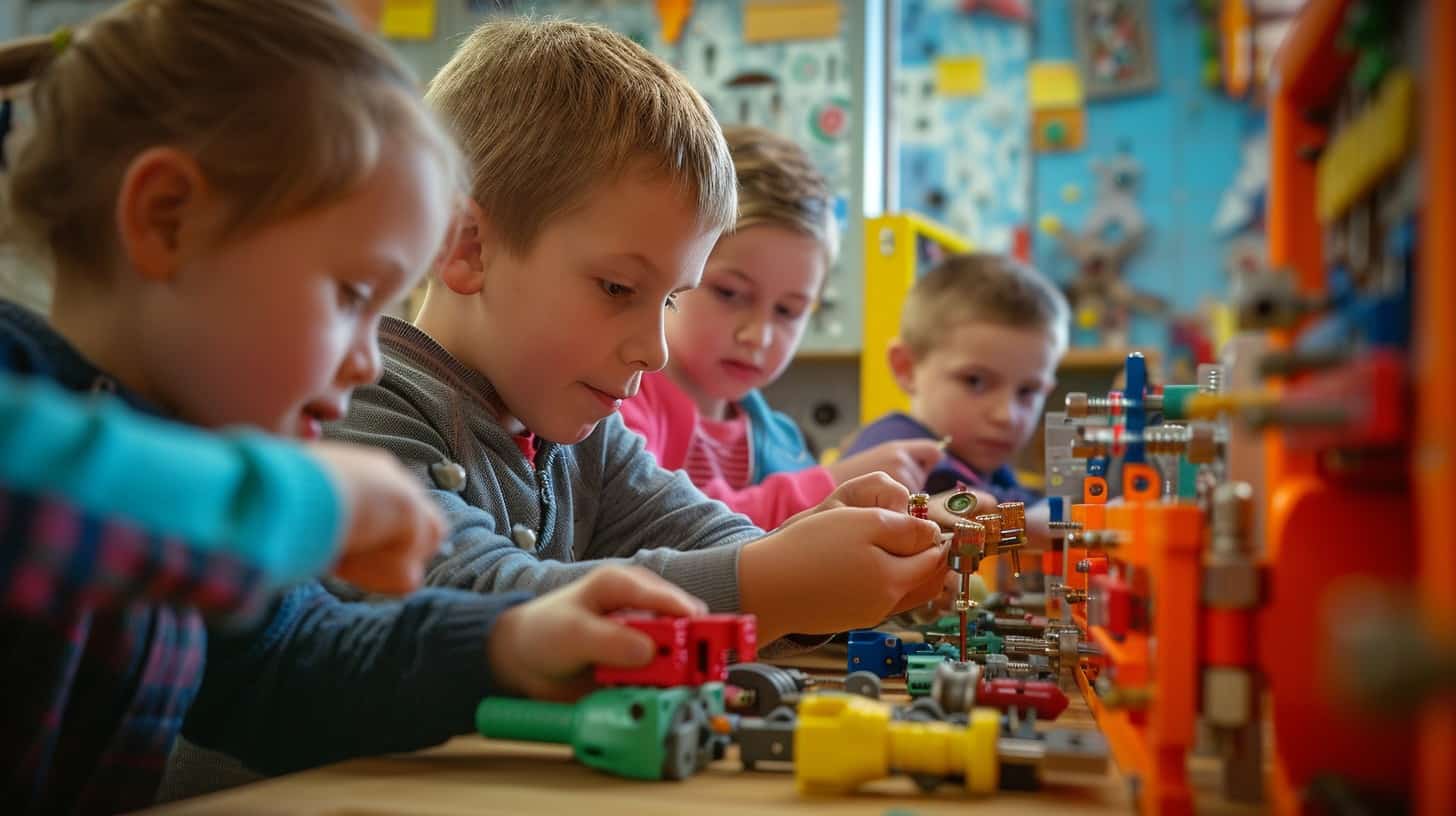Occupational therapy at home can be a lifesaver for parents and kids alike. It helps children develop important skills while having fun. Whether your child struggles with fine motor skills or needs to burn off some energy, integrating therapy into daily activities can make a big difference.
You can try fun occupational therapy activities for kids, like bike riding, jump rope, or simple egg races. These activities are not only enjoyable, but they also strengthen your child’s vestibular system and improve balance and coordination. Activities like stringing macaroni on yarn or using tweezers to pick up small objects can be both educational and entertaining.
Creating homemade puzzles or getting creative with play dough can make therapy feel more like playtime. These activities do more than entertain; they help develop critical skills that will benefit your child in everyday life. Please keep in mind that this is an informational, not professional article, so please contact a medical expert if you require any additional assistance.
Developing Fine Motor Skills Through Play
Engaging in activities like cutting with scissors, molding Play-Dough, and building with blocks can significantly boost your child’s fine motor skills. These tasks help improve hand strength, coordination, and overall dexterity.
Crafting with Scissors and Glue
Using scissors to cut paper and then gluing the pieces together can be both fun and educational for kids. When children use scissors, they must practice precision and control, which strengthens their hand muscles and improves coordination. Simple tasks like cutting out shapes or following lines can be very effective.
Creating collages with cut-out pictures and using stickers can further improve these skills. Encourage your child to squeeze the glue bottle, which works on hand strength. Craft projects combining cutting and gluing allow children to practice these motor tasks in creative ways.
Enhancing Grip with Play-dough and Putty
Playing with Play-Dough and putty is excellent for developing fine motor skills. These materials provide resistance when squeezed, rolled, or flattened, which helps build hand strength.
Children can roll out snakes, create shapes, or even try more intricate tasks like making toothpick sculptures. In addition to building strength, activities with Play-Dough improve hand-eye coordination. Encouraging your child to use tools like plastic knives or cookie cutters can further develop these skills. Play-Dough exercises can be both fun and instrumental in motor development.
Building with Blocks and Legos
Building with blocks and Legos offers numerous benefits for fine motor skills. Picking up and placing small pieces requires precision, improving hand-eye coordination. As children stack blocks or snap Legos together, they use different hand muscles, which builds strength and dexterity. These activities also help with problem-solving and spatial awareness. Encourage your child to build various structures, which can be both challenging and rewarding. The repetitive nature of this play guarantees continued practice and improvement in fine motor skills. Combining blocks and Legos with other tasks can make playtime more engaging and educational.
Promoting Gross Motor Development and Sensory Processing
To help children improve their gross motor skills and sensory processing, you can incorporate engaging activities that focus on movement, balance, and experiences.
Incorporating Movement with Games and Yoga
Children can develop their motor skills through fun games and simple yoga poses. Games like hopscotch, tug-of-war, and obstacle courses encourage movement and improve coordination.
Hopscotch helps with balance and hopping skills. Tug-of-war is great for building core strength and teamwork. Obstacle courses can include crawling under tables, jumping over pillows, and balancing on a narrow path. Each movement targets important motor skills.
Yoga is another effective way to promote physical activity. Simple poses like Downward Dog, Tree Pose, and Cat-Cow pose help with balance, flexibility, and core strength. You can make it more fun by turning it into a story or adventure. Using a trampoline for jumping exercises can also be highly beneficial for coordination and ventilation.
Creating Sensory Experiences with Bins and Materials
Sensory bins are excellent for enhancing sensory processing. They are easy to create and can be customized based on your child’s preferences and needs.
You can use a plastic container filled with materials like rice, beans, or sand. Adding small toys, spoons, and scoops allows for digging and sensory exploration. This setup helps kids get used to different textures, improving their sensory processing and fine motor skills.
To improve the experience, you can add thematic elements like plastic insects or sea creatures, making it both educational and entertaining. Providing a variety of tactile experiences helps children become more comfortable with different textures and can help them manage sensory sensitivities better. For more ideas, check out these at-home sensory activities.
These activities not only engage children but also support their overall sensory development, helping them navigate and interact with their environment more effectively.
Conclusion
At-home occupational therapy activities provide a great way to support a child’s development. Simple tasks like sorting coins, drawing, and making crafts can greatly improve fine motor skills.
Physical activities such as bike riding and jump rope can help boost a child’s coordination and balance. By integrating these activities into daily routines, you can make therapy both fun and effective.
